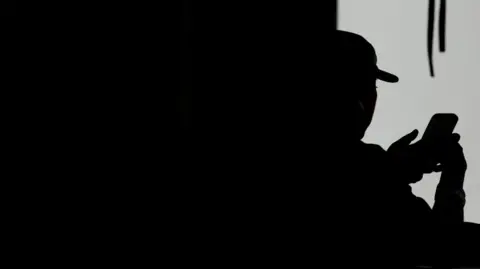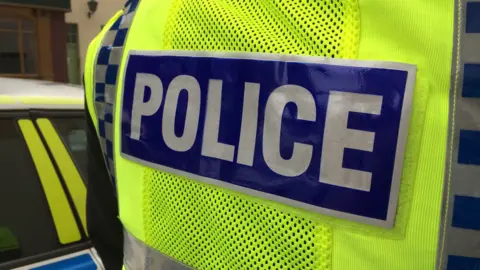New mental health policy 'saves police officer time'
 Shutterstock
Shutterstock A new approach to dealing with calls involving mental health concerns is saving police time, one force has said.
Under the Right Care, Right Person (RCRP) scheme, police respond to fewer calls involving mental health concern, with people diverted to other services.
Cambridgeshire Police said initial analysis showed 447 police officer hours were being saved, on average, every month, freeing up officers to attend incidents where their "skills and time are most needed".
However, charity Rethink Mental Illness said while it agreed police were not usually the right agency to respond to people in mental distress, the amount of officer hours saved was not the only measure of the policy's success.
Cambridgeshire Police said the first phase of the scheme, introduced in late 2023 and focussing on "concern for welfare" calls, had already "shown its effectiveness".
The force released analysis as the second of three phases was introduced.

Police said under phase two, they would not "routinely attend" when a "patient... has left a medical setting" or had been "detained under a mental health section" and was "absent without leave".
But the force said officers would still attend when there was a "risk to life", a "risk of serious harm", a "duty to respond to crime" or a "policing-specific vulnerability".
It said officers may still attend if "all reasonable steps" had been taken to locate the patient.
'Unsafe and reckless'
Lucy Schonegevel, director of policy and practice at Rethink Mental Illness, said: "We agree that in most cases the police are not the right agency to respond to people in mental distress, but it would be wrong to count the amount of police hours saved by Right Care, Right Person as the only measure of success.
"Mental health services are currently under immense pressure due a lack of resources, and we’ve seen growing evidence that they’re struggling to plug the gap left by the police withdrawal from most mental health calls.
"This is why health and care services need an additional £260m funding, with transparent monitoring and oversight to ensure people in crisis will be kept safe."
The scheme was introduced in Norfolk in May, having been postponed following the deaths of four members of one family in Costessey, near Norwich, in January.
It had emerged one of the four, Bartlomiej Kuczynski, 45, had dialled 999 expressing concern about his mental state, and was directed to NHS 111.
Mark Harrison, from the Campaign to Save Mental Health Services in Norfolk and Suffolk, said in May that implementing the scheme was "unsafe and reckless".
Cambridgeshire Police said the scheme had been developed in "close collaboration with health and social care partners".
It said it was designed to ensure the "right person" with the "right skills, training and experience" responded when there were welfare concerns.
“It’s really positive to see that the RCRP scheme is already having the desired effects; our residents are receiving a better level of care from the most appropriate agency and police officers are being freed up to attend incidents where their skills and time are most needed," said Assistant Chief Constable Martin Brunning.
“Protecting the vulnerable and keeping people safe is at the heart of everything we do and we want to ensure people receive the necessary support, while keeping police resources to tackle crime and deliver safer communities for the public."
Follow Cambridgeshire news on Facebook, Instagram and X. Got a story? Email [email protected] or WhatsApp us on 0800 169 1830
